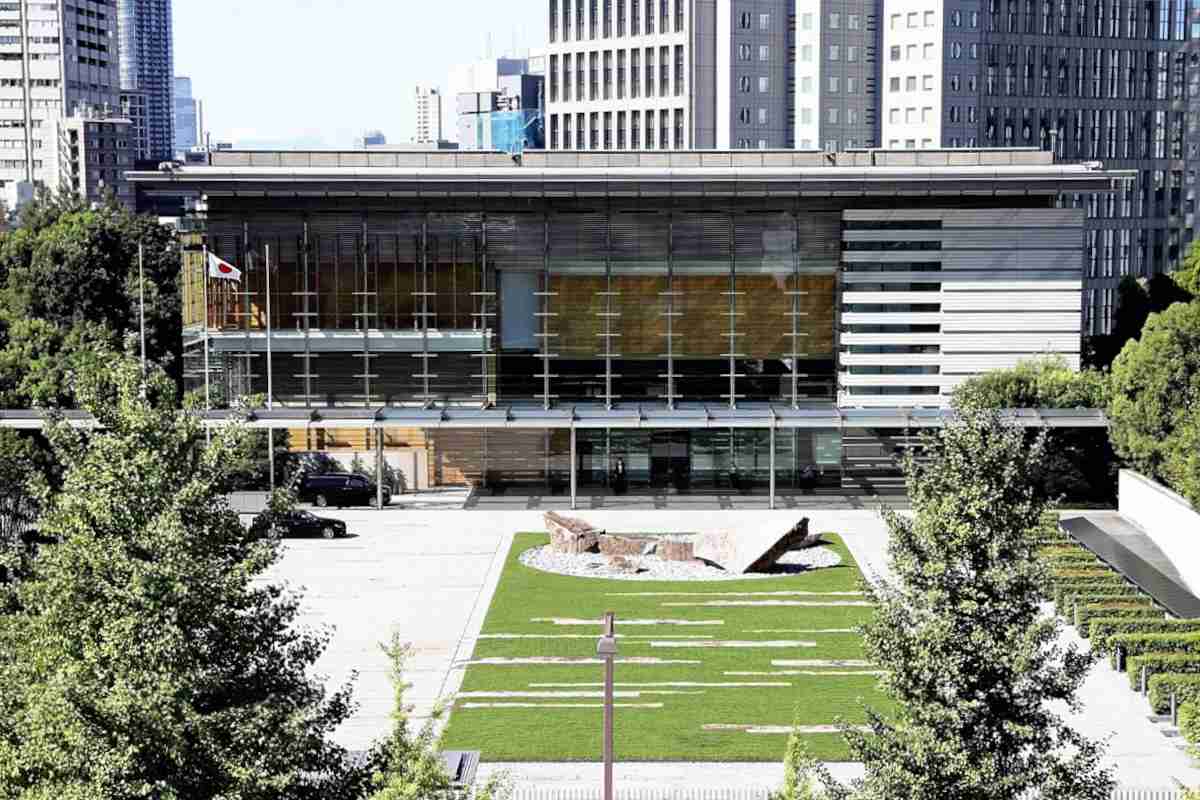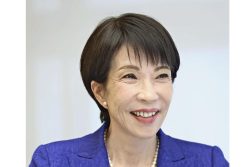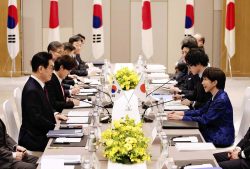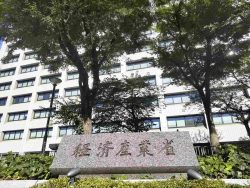
The Prime Minister’s Office in Tokyo
16:32 JST, April 6, 2023
The government unveiled a framework to provide defense equipment free of charge to the militaries of “like-minded countries” on Wednesday.
The official security assistance (OSA) framework is intended to strengthen the deterrence capabilities of countries in the Indo-Pacific region that share values with Japan and deter China amid its maritime expansion and military buildup.
The Japanese government has included ¥2 billion for related expenses in the budget for fiscal 2023.
The OSA framework is different from official development assistance (ODA), which has been limited to non-military assistance. The new framework, which was adopted Wednesday at a National Security Council (NSC) meeting, will allow for direct assistance to the militaries of developing countries that share values such as the rule of law.
The operational guidelines of the framework stipulate that assistance should be provided when it contributes to the improvement of monitoring, surveillance and disaster response capabilities of recipient countries, and international cooperation activities.
To ensure aid does not deviate from the basic principles of the OSA framework, the guidelines state assistance should be provided within the framework of the Three Principles on Transfer of Defense Equipment and Technology, and only in “fields not directly relating to any international conflict.”
Chief Cabinet Secretary Hirokazu Matsuno stressed the significance of the framework at a press conference Wednesday saying, “It’s essential to improve the deterrence capabilities of like-minded countries for the sake of peace and stability in the Indo-Pacific region.”
Possible recipients for the first round of assistance under the framework include Philippines, Malaysia, Bangladesh and Fiji, which all border the South China Sea or the Indian Ocean.
Warning and surveillance radars and marine radio communication systems are expected to be provided.
The Philippines, in particular, is up against China’s aggressive maritime expansion in the South China Sea, including the reclamation of reefs. In order to counter these moves, Japan intends to push for the strengthening of the capabilities of the Philippine military.
The formation of the OSA framework was included in the revised National Security Strategy that was unveiled in December.
In many developing countries, the armed forces are responsible for coastal security, and it is not uncommon for the military and private sector companies to share sea and air port facilities.
The ODA framework cannot provide assistance for such facilities, which has prompted criticism. A senior foreign ministry official has said Japan’s assistance “does not adequately meet the requirements” of countries in need.
A review of the operational guideline of the Three Principles on Transfer of Defense Equipment and Technology is expected to be discussed in May and preparations are currently underway in the Liberal Democratic Party and its coalition partner Komeito.
ODA budget
A revised draft of the Development Cooperation Charter released Wednesday by the Foreign Ministry stated for the first time that the government will expand the ODA budget and promote a free and open Indo-Pacific.
According to the draft of the charter, which sets guidelines for official development assistance, Japan will also help developing countries reinforce their maritime security capabilities to realize a free and open Indo-Pacific. Assistance is likely to include the provision of patrol boats and human resource development.
Amid growing criticism of China’s tactics of obtaining the rights to use infrastructure through the issuance of massive loans that plunge borrowing countries into unmanageable debt, the draft also includes a policy to consider “debt sustainability” when implementing ODA.
Cooperation will be implemented in a manner that does not lead to “debt traps or economic coercion,” according to the draft.
The OSA and ODA frameworks are expected to be used to support developing countries and strengthen multilateral cooperation that upholds the international order based on the rule of law.
Top Articles in Politics
-

Japan Tourism Agency Calls for Strengthening Measures Against Overtourism
-

Japan Seeks to Enhance Defense Capabilities in Pacific as 3 National Security Documents to Be Revised
-

Japan’s Prime Minister: 2-Year Tax Cut on Food Possible Without Issuing Bonds
-

Japan-South Korea Leaders Meeting Focuses on Rare Earth Supply Chains, Cooperation Toward Regional Stability
-

Voters Using AI to Choose Candidates in Japan’s Upcoming General Election; ChatGPT, Other AI Services Found Providing Incorrect Information
JN ACCESS RANKING
-

Univ. in Japan, Tokyo-Based Startup to Develop Satellite for Disaster Prevention Measures, Bears
-

JAL, ANA Cancel Flights During 3-day Holiday Weekend due to Blizzard
-

China Confirmed to Be Operating Drilling Vessel Near Japan-China Median Line
-

China Eyes Rare Earth Foothold in Malaysia to Maintain Dominance, Counter Japan, U.S.
-

Japan Institute to Use Domestic Commercial Optical Lattice Clock to Set Japan Standard Time

























